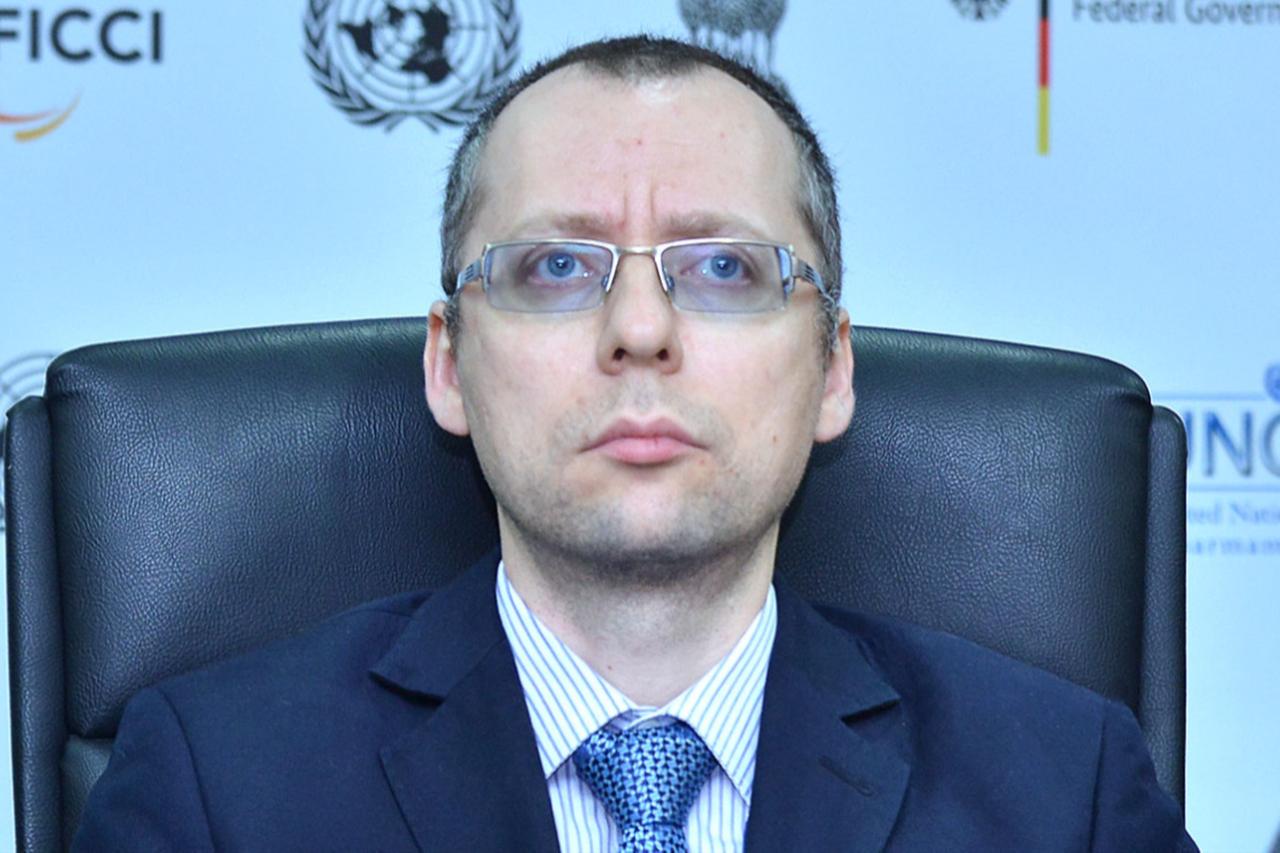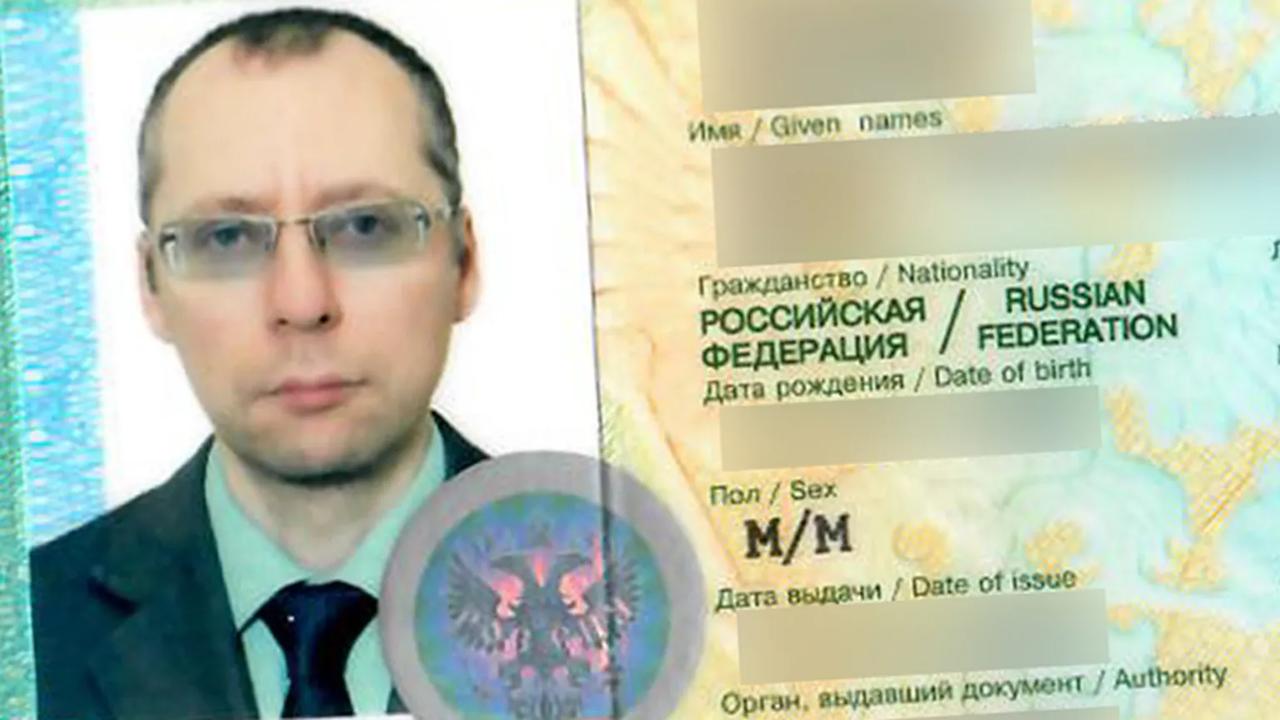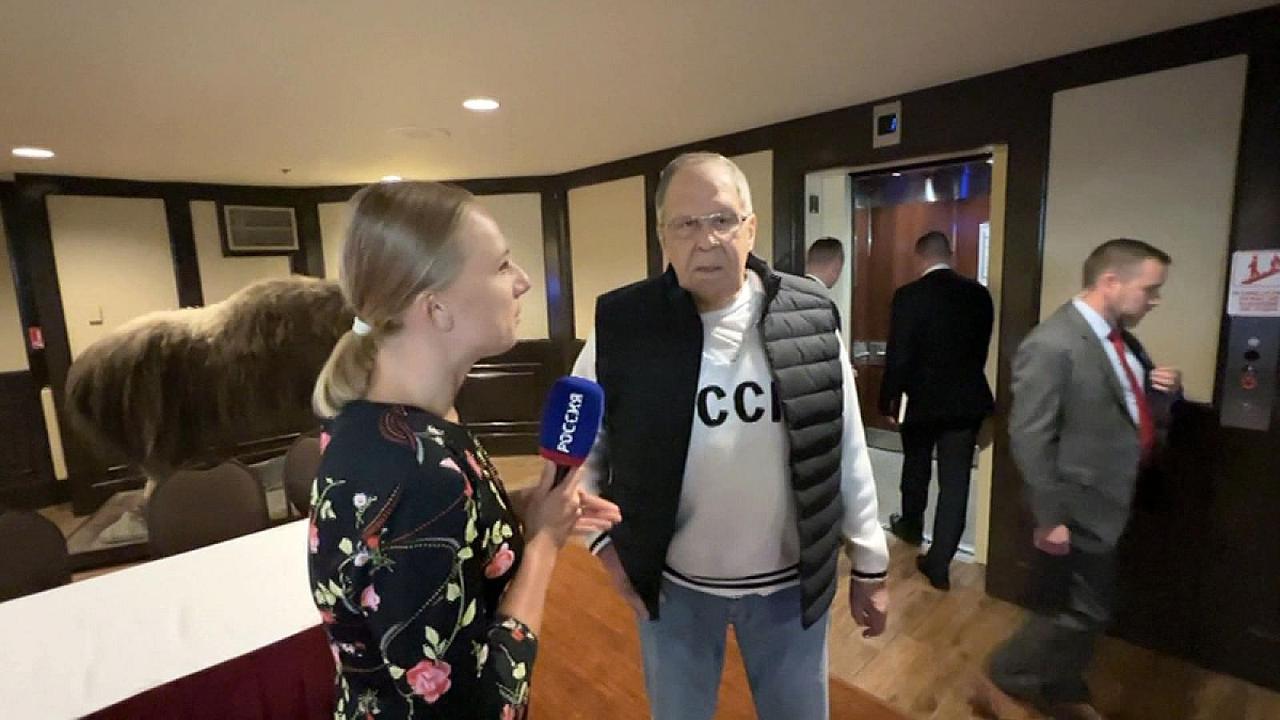
In 2022, Moscow’s long choreography of “managed confrontation” gave way to a full-scale war in Ukraine.
Inside Russia’s foreign-policy machine, the rupture produced something rare: open dissent from within.
The most visible dissenter was Boris Bondarev, a career diplomat stationed in Geneva, who resigned publicly and explained, bluntly, why the Ministry of Foreign Affairs (MFA) could no longer be defended from the inside.
Raised in a public-service household, he spent nearly two decades at the MFA, moving from policy desks in Moscow to multilateral work in Geneva. Known for his expertise in rules and processes on arms-control and U.N. files, and for his straightforward approach in internal debates, he brought the same clarity to his resignation.
His account is not merely a personal moral tale; it is also a field note from a system that, in his telling, traded diplomacy for the centrally scripted performance.
Bondarev frames his exit as the endpoint of a long internal argument. For years, the job was interesting, the salary was good, and life was comfortable; there was always a reason to stay one more year. After Feb. 24, 2022, he says, calculus collapsed: “Russia’s aggression against Ukraine became a turning point for me. Before that, like many others, I tried to find excuses … But once the war started, those excuses disappeared. It became obvious that things were indeed that bad, and I had to make a moral choice—whether I was prepared to live with it or not.”
This was not just a matter of conscience; it was a judgment about the MFA’s actual place in policymaking.
Over time, he concluded the system had become “fundamentally flawed,” a structure that “existed only to serve itself” and was “doomed to eventual collapse.”
The war simply stripped away the illusion that technical execution could be separated from political responsibility. He says the decision had been building for years; he, like many colleagues, eventually had to choose—everyone reaches that point sooner or later.

From 2014 onward—and especially after 2022—Russian diplomacy, as Bondarev describes it, narrowed into scripted uniformity. Talking points were drafted in Moscow, cleared through the Presidential Administration and Security Council, and sent to missions with diminishing room for deviation. The result was less negotiation than recitation.
“In reality, Russian diplomats have never enjoyed much freedom of maneuver … The goals and objectives of foreign policy have always been defined ‘from above’; diplomats’ share of responsibility is largely technical execution.”
He noted that this was not always the case. In the Soviet era under Andrei Gromyko, the Ministry of Foreign Affairs was a co-author of policy, playing a full role in shaping positions. In the early 1990s, Andrei Kozyrev also made the MFA visible, if briefly.
Under Putin, however, the MFA gradually became a purely technical executor, transmitting rather than shaping policy.
This structural decay soon reached the reports themselves. Embassies learned to highlight successes, conceal failures, and carefully craft every line to avoid questions such as, “Is this mission underperforming?”
Over time, diplomatic cables lost their analytical clarity and turned from genuine reporting into performance documents written to impress Moscow rather than to inform it, often filled with slogans and tales of “how we bravely thwarted Western plots.”
The effect, he insisted, was not cosmetic; it distorted senior leaders’ sense of reality.
Bondarev recalled how reports were often padded with “heroic feats” while retreats were buried in vague language. The classic trick was to mention reverses in passing, then devote pages to tales of individual bravery.
This practice did not just mislead the public; it misled Moscow itself, building the illusion that setbacks were minor and morale was high.
He also pointed to the difference he observed with American delegations in Geneva. U.S. teams arrived with large groups, each member a specialist with decades on a single issue, taking the microphone only when their topic arose.
Russian diplomats, by contrast, were expected to speak on everything. “You cannot be an expert on all issues,” he noted. “You can have surface knowledge, but not deep expertise.” The result was both thinner analysis and greater reliance on formulas from Moscow.
Compliance, he added, is closely monitored. Pre-cleared questions and answers, and written red lines arrive in advance; “creative phrasing” is tolerated only if it does not alter the line.
When reality contradicts the script, the script prevails. He said the full-scale invasion itself was planned on precisely these warped assumptions—and that is why it failed its own premise.

The Kremlin’s rhetoric has increasingly leaned on Soviet and imperial references. Think of Putin’s 2016 line that “Russia’s borders never end,” the 2025 flourish that “where the Russian soldier sets foot is Russia,” and the 2021 essay denying Ukraine’s sovereign legitimacy.
The visual politics travel too—most memorably when Foreign Minister Sergey Lavrov showed up in Alaska wearing a “USSR/CCCP” sweatshirt, a move widely read as trolling.
For Bondarev, this is less about grand strategic ambition than about ideological emptiness.
“Putin built a regime of personal rule—essentially, a neo-feudal society. The masses are excluded from power, while the ‘new nobility’ … receive ‘fiefs’ in exchange for loyalty. The regime’s ideology is simple: ‘We will stay in power forever and pass it on to our children.’ Such an idea cannot be openly sold to the public. Therefore, it is disguised with ‘ideological crutches’ borrowed from the Soviet and imperial past,” he added.
He called the aesthetic “eclectic”—Soviet icons paired with Orthodoxy, even efforts to sanitize Stalin despite his persecution of the church. The point, he insists, is not that the state is building a new, confident civilizational project; it is that it is not building one. The past is a mask for a future that cannot be articulated.
Since the full-scale invasion, Moscow has questioned Ukrainian President Volodymyr Zelenskyy’s legitimacy and leaned on “denazification” language, even as officials occasionally hint at openness to talks “in the right format.” In the Istanbul track, however, Putin called a leaders’ summit “meaningless,” arguing he had already sent a delegation of “high competence and authority.”
Bondarev’s read is unsentimental: “Putin would only agree to meet Zelenskyy for the purpose of accepting Ukraine’s capitulation. He does not see Ukraine as a legitimate subject, nor Zelenskyy as an equal leader … A meeting without capitulation would be dangerous for Putin’s image: it would put Zelenskyy ‘on the same level’ and risk leaving without results.”
What especially unsettles him, Bondarev says, is Ukraine’s example of routine leadership turnover—a Slavic neighbor proving that democratic alternation of power can work.
This creates a dual message—public gestures of openness meant to reassure outside audiences (not least Trump), paired with a political line that makes any top-level meeting effectively impossible.
In practice, Bondarev said, the real test is whether Moscow is willing to pay tangible costs up front: releasing prisoners beyond swaps, accepting verifiable ceasefire mechanisms, or taking visible steps toward withdrawal.
Without such actions, he argued, the performance should be read as theater.
Since January, the Trump White House has personalized outreach to Putin. The flattery has been mutual: Trump calling Putin a “smart guy,” the Kremlin returning public compliments and even delivering a commissioned portrait to the Oval Office through a special envoy. In Alaska, Putin spoke of a “light at the end of the tunnel” for ties. Bondarev says the Russian system’s view of Trump blended opportunity with risk: “In Moscow, Trump is seen as a figure they can work with—cautiously: unpredictable; craving constant flattery and attention; fearing the strong but wanting to resemble them; reacting more to words than to deeds.”
Within Trump’s circle, Bondarev says, there were utterly incompetent figures like Witkoff—and a few more capable ones, like Marco Rubio, who sometimes tried to restrain him.
He cited a telling detail from Alaska: what began as a one-on-one was first set to become “5-on-5,” then—at the last minute—“3-on-3,” which he suspects was pushed by more cautious Republicans wary of leaving Trump alone with Putin.
As for goals, he thinks the Kremlin’s minimums are clear: “benevolent neutrality,” no new sanctions, erosion of existing ones, and—already achieved—an end to unconditional aid for Ukraine, ideally shifting to sales and then to zero. The performance logic is also clear: praise Trump’s ‘peace efforts’ publicly while intensifying strikes on Ukraine.
“Manipulating him is not that difficult … But the Kremlin must avoid provoking him into unpredictable reactions—the game must be careful and measured.”
Ankara’s role has grown: Bayraktar drones helped blunt Russia’s first offensive; MIT-brokered prisoner exchanges delivered concrete outcomes; the grain corridor worked for a time; and President Erdogan has kept a table open between Kyiv and Moscow.
Bondarev sketches Türkiye as a regional military power with its own agenda—assertive in the South Caucasus, present in Syria, and able to unsettle Russian positions. The Bayraktar drones, he adds, became a symbol of the new “drone war.”
“Erdogan knows how to handle Putin and commands cautious respect, even fear, from him.”
He frames the Black Sea calculus starkly: If Russia loses, Ankara becomes de facto master of the sea; if Russia wins, Moscow becomes master—and may reach for the Caucasus in ways that cut across Turkish interests.
The upshot, he argues, is that Türkiye’s incentive structure leans toward a Russian defeat, even as Ankara balances because of trade ties.
From Moscow’s perspective, Turkish mediation remains useful—but mostly as optics: “In 2022 and again in 2025, Istanbul talks boiled down to prisoner exchanges. Serious progress is impossible without a decisive battlefield shift.”
Since the war began, nuclear signaling has intensified: suspended treaty obligations, forward movement of assets, and verbal redlines whenever Western systems strike deep inside Russia.
For Bondarev, the logic is disciplined, not deranged: “Nuclear weapons are Putin’s chief trump card. Without them, Russia might have been defeated in 2022 … Putin himself does not want nuclear war: he aims to rule long and comfortably, not to live in a bunker. Nuclear threats serve to restrain the West. Each time ‘red lines’ were crossed (tanks, planes, missiles), no retaliation followed—but fear persisted.”
But the risk, he adds, is not zero. If the ground slips, the threshold narrows. His prescription is “two-way deterrence”: make consequences inevitable and talk to the entourage.
“It is essential to send a message to the military, security services, and bureaucracy: ‘the old leader is dragging you into the grave. Remove the risk—and we can work with you.’ Otherwise, if Putin gives the order, it may be too late.”
Bondarev’s final warning is also the most severe: Western diplomats, he argues, keep projecting their own habits onto Moscow—assuming that extreme opening bids are “maximalist” and will later be bargained down.
“Calling Putin’s demands ‘maximalist’ is a grave mistake. They are not bargaining chips; they are the minimum requirements.”
From his perspective, what the Kremlin states openly—control of four Ukrainian regions, “demilitarization,” “denazification”—is not a posture for negotiation but exactly what Putin wants. These are the minimum terms.
And when Western diplomats begin serious talks on that basis, Moscow’s pattern is to raise new demands, threaten to walk away, and resume the war, leaving Europeans desperate to preserve their self-assigned role as “peacemakers.”
In his telling, Western diplomacy fundamentally misunderstands this dynamic because it is structurally incapable of confronting it.
European diplomats are used to negotiating with themselves—endless consensus-building, legalistic haggling inside the EU, talks that drag on for years. When confronted with crises demanding swift, life-or-death decisions, they stall and hope the threat will fade. But Russia’s demands will not fade.
Thus, Putin’s statements, according to Bondarev, must be taken literally. He is not floating maximalist rhetoric.
He is fighting for his vision of the postwar order, and once he secures concessions, he will demand more. Even granting these so-called “minimums” would, Bondarev says, represent a categorical defeat for the West—not only for Europe but also for the United States.
“NATO countries have not lost a single soldier, a single piece of equipment, not a single square meter of their own territory. Yet they behave as if they are surrendering without a fight—to a country whose potential is far smaller.”
Whatever Trump may present himself as—mediator or dealmaker—he is still President of the United States, and America is still the guarantor that pledged to support Ukraine “for as long as it takes.” If Washington walks away now, the world will read it as fear of Russia and an unwillingness to confront conflict. That, Bondarev warns, would be the final nail in the coffin of America’s global posture.
The logic extends to Europe as well. Even after Russian drones hit Polish homes and NATO air defenses were triggered for the first time, European leaders still behave as though Ukraine’s defense can be managed with incremental aid, words, and delay.
In Bondarev’s reading, this is capitulation in slow motion—not just of Ukraine, but of the entire Western project.
The result, he argues, is that a deal with Putin on his terms is not peace at all but surrender.
“A deal with Putin is impossible, because what he demands is not compromise—it is a capitulation of the West … If Europe and America want to preserve themselves as independent actors, they must insist that he withdraw his terms, not that they accept them,” Bondarev concluded.